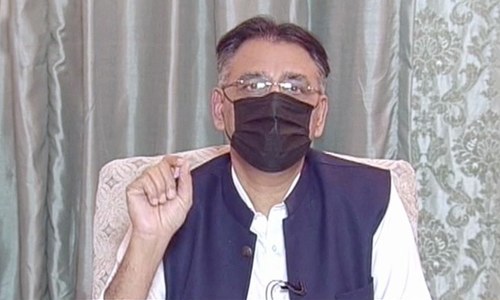The Pakistan Civil Aviation Authority (CAA) on Tuesday notified revised standard operating procedures for international inbound travellers to Pakistan "in view of the recent surge in Covid-19 cases across the globe".
In a letter sent to all airline operators, the CAA said the new requirements will go into effect from August 9. The new SOPs include:
- All inbound passengers aged six years or above will be required to possess a valid negative PCR test result conducted within 72 hours prior to commencement of travel to Pakistan.
- All passengers aged six and above will undergo Rapid Antigen Testing upon arrival in Pakistan.
- Positive-testing passengers between the ages of six and 12 years will be home quarantined under the supervision of the concerned civil administration.
- Positive-testing passengers above 12 years of age will be quarantined at a designated facility as per procedure already in vogue.
Earlier this year, the government had abolished the condition for passengers whose RAT tests returned negative to quarantine in their homes.
Those testing positive were required to undergo quarantine in their homes rather than in government facilities. However, the CAA in its latest advisory has changed this SOP, with passengers above 12 years of age required to quarantine at a designated facility.
"Considering the volatile nature of the Covid-19 situation, any or all arriving passengers may also be subjected to additional stipulations as mandated by the relevant health authorities upon arrival in Pakistan," the authority said in the letter.
In June, the National Command and Operation Centre (NCOC) had decided to gradually normalise inbound international air travel, increasing direct flights to 40 per cent from the United Kingdom (UK), Europe, Canada, China and Malaysia.
It was announced that from August 1 air travel would not be allowed for those who have not been vaccinated.
The revised SOPs come as Pakistan is in the grips of the fourth wave of the coronavirus pandemic, with 3,582 cases and 67 deaths reported in the last 24-hour period.
The latest surge is blamed on the Delta variant, originally detected in India some months ago, along with lax social attitudes and increased activity around Eidul Azha.















































